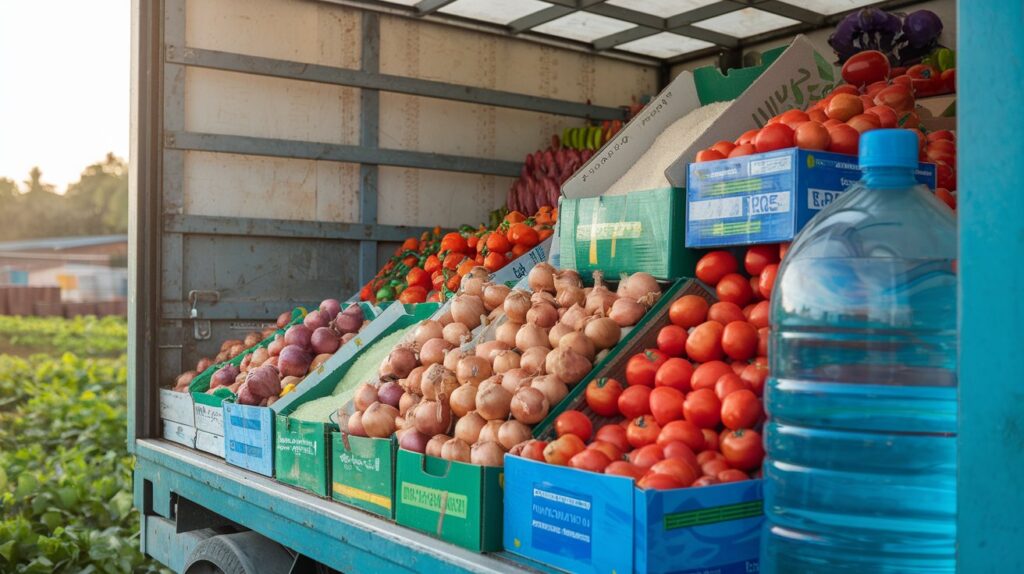With the rising global demand for food and increasing environmental challenges, sustainable agriculture has become a key focus for both farmers and exporters. Countries worldwide are seeking ways to balance high-yield farming with eco-friendly practices while ensuring stable global trade.
For agricultural exporters like Amaze International, adopting sustainable methods not only ensures better product quality but also strengthens their position in international markets. This blog explores the impact of sustainable agriculture on exports, current trends, and strategies for a greener future.
1. The Growing Need for Sustainable Agriculture
Why Sustainability Matters in Agriculture
- Reducing soil degradation and improving long-term productivity.
- Addressing climate change challenges affecting crop yields.
- Ensuring compliance with global trade regulations on eco-friendly production.
Global Demand for Sustainable Farming Practices
- EU Green Deal and stricter import policies favoring sustainably grown crops.
- Carbon footprint reduction goals influencing global trade agreements.
- Increasing consumer preference for organic and sustainably sourced food.
Key Sustainable Farming Practices Gaining Traction
- Precision farming using AI-driven analytics.
- Regenerative agriculture to restore soil health.
- Water-efficient irrigation for drought-prone regions.
2. How Sustainability Impacts Agricultural Exports
Regulatory Requirements in Global Markets
- The European Union’s Farm to Fork Strategy mandates sustainable sourcing.
- The US and Canada require stricter pesticide control measures in imported crops.
- Middle Eastern markets favor water-efficient agriculture for long-term trade agreements.
Consumer Demand for Sustainable Products
- Organic certification is becoming a key export driver.
- Fair Trade and Carbon Neutral labeling increase product competitiveness.
- Buyers in Europe, Japan, and the US prioritize climate-friendly products.
Sustainability as a Competitive Advantage for Exporters
- Companies adopting sustainable packaging for exports see higher demand.
- Implementing blockchain traceability enhances product trust and premium pricing.
- Eco-friendly logistics are gaining traction, including green shipping initiatives.
3. Key Strategies for Exporters to Adopt Sustainable Practices
1. Investing in Climate-Resilient Crops
- Developing drought and flood-resistant crop varieties.
- Expanding organic farming to meet global standards.
2. Implementing Smart Farming Technologies
- AI-driven soil monitoring to reduce excessive fertilizer use.
- IoT-based irrigation systems to optimize water consumption.
3. Adopting Sustainable Packaging & Logistics
- Using biodegradable packaging for export goods.
- Partnering with green-certified logistics companies.
4. Strengthening Supply Chain Transparency
- Using blockchain for traceability, ensuring ethical sourcing.
- Collaborating with certified organic and fair-trade farmers.
4. Case Studies: How Countries Are Leading Sustainable Agri-Exports
India: Organic Farming Expansion for Export Markets
- India is rapidly growing its organic farm exports, with increasing shipments to Europe and the US.
- Government incentives are supporting farmers to adopt zero-chemical farming.
Netherlands: Smart Agriculture & Eco-Friendly Export Models
- The Netherlands is leading in hydroponic and vertical farming for sustainable food production.
- Exports of low-carbon footprint produce are increasing due to sustainable practices.
Brazil: Balancing Large-Scale Farming with Sustainability
- Adopting agroforestry techniques to counter deforestation concerns.
- Implementing carbon offset programs for agricultural exporters.
5. The Future of Sustainable Agriculture & Export Trade
Innovations in Sustainable Farming
- Growth of biodegradable fertilizers to replace synthetic chemicals.
- Advances in genetic crop improvement for low-input farming.
Policy & Investment Trends
- Increased funding in climate-smart agriculture initiatives.
- Expansion of carbon credit markets for agricultural exports.
How Exporters Like Amaze International Can Lead the Change
- Partnering with sustainable farmers to source eco-friendly crops.
- Implementing low-carbon shipping solutions for international trade.
Conclusion: Sustainable Agriculture as the Future of Global Trade
The shift towards sustainable agriculture is no longer optional—it’s essential for long-term profitability and international trade compliance. Exporters like Amaze International can leverage sustainable practices to meet global standards, attract premium buyers, and build a future-proof business.
